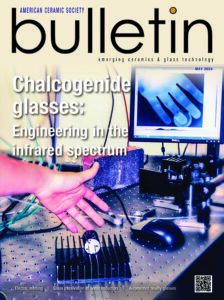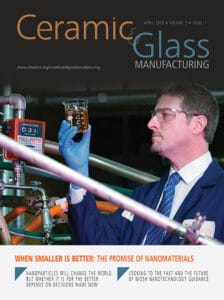
Gordon Research Conference
Supported by ACerS Basic Science Division
Merging Atomistic and Continuum Analysis of Defects and Interfaces Across Varying Length-Scales
The Solid State Studies in Ceramics GRC is a premier, international scientific conference focused on advancing the frontiers of science through the presentation of cutting-edge and unpublished research, prioritizing time for discussion after each talk and fostering informal interactions among scientists of all career stages. The conference program includes a diverse range of speakers and discussion leaders from institutions and organizations worldwide, concentrating on the latest developments in the field. The conference is five days long and held in a remote location to increase the sense of camaraderie and create scientific communities, with lasting collaborations and friendships. In addition to premier talks, the conference has designated time for poster sessions from individuals of all career stages, and afternoon free time and communal meals allow for informal networking opportunities with leaders in the field.
For over 60 years, the Gordon Research Conference on Solid State Studies in Ceramics has served as a focal point for the discussion of a menagerie of topics on advanced ceramics, including fundamental and applied properties, and processing; ranging from volumetric and multi component to interfacial and multi physical descriptions. The 2024 conference will focus on cutting edge fundamental and applied science of surfaces and interfaces in ceramics, including processing, characterization, modeling and simulation, as a result of multiple physical stimuli, across all length scales. The emergence and application of modern experimental and modeling tools are integrated into data-driven and artificial intelligence frameworks to harness the underlying driving forces that control equilibrium properties, as well as multi physical couplings impacting microstructural evolution, as we pursue the ever going quest of designing advanced materials and devices for a wide variety of multifunctional, structural, electronic, and energy applications.
Participants will experience a stimulating, diverse environment at the forefront of ceramic science and engineering. Young scientists will enjoy the opportunity to interact with world experts in the field during invited oral presentations, poster sessions (all participants are strongly encouraged to submit a poster), with the keen intent to identify microstructural, multi scale challenges and opportunities, harnessing defects through traditional and advanced processing science. The associated Gordon Research Seminar (GRS) will provide opportunities and background for professional development and networking in an environment that fosters creativity, diversity, and inclusion for young researchers.




